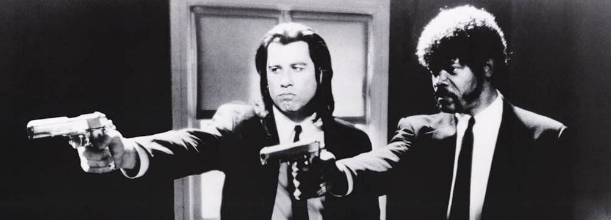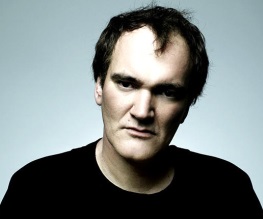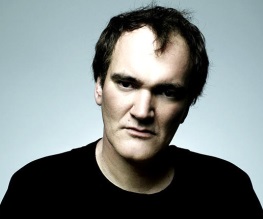The Top 5 Films That Aren’t As Clever As We Think They Are

Any Lars Von Trier Film
Why we think they’re clever
Tantalising ideas, poignant representations of pain and grief, beautifully shot vistas and fantastic casts; critics laud Von Trier’s unsubtle manner and deliberate overkill, not to mention his experimentation with plot and form. Think Melancholia, The Five Obstructions and Antichrist for prime examples of this.
Why they’re actually not clever
The symbolism of Von Trier’s work is painfully obvious, the dialogue trite and dull and, sure, he experimemts… but not in a successful way. The Five Obstructions is an interesting idea, but it is executed in the most bone-crushingly boring form I have ever seen; would anybody enjoy watching the same film five times? Lars von Trier would, apparently.
From talking foxes and overly-dramatic use of pathetic fallacy, to heavy-handed direction destroying any moments of real emotional connection, Von Trier has ruined films such as Melancholia by turning them into obscene examples of self-gratification. A clever film became a melodramatic excuse for Trier to re-affirm himself after his problems with depression, meaning that he portrayed Dunst’s character as the most aware and useful one in an end-of-world situation, despite her previously crippling emotional paralysis.
Inception (2010)
Why we think it’s clever
This is an impressive film and there’s no denying that it’s really great to have a blockbuster that requires some thought on behalf of the audience. The idea of self-creation, of dreams and realities, and how easily importance can shift between what we know and what we need to believe, Inception requires us to abandon all of our pre-conceived ideas at the door and embrace it with an open mind.
Why it’s actually not that clever
At it’s most basic, it’s a film about alternate reality, and this is a well-traversed theme in both cinema and literature. You could almost watch this film as a very loose remake of Paul Verhoven’s Total Recall; is it a dream? Is it not? Who is he when he is in the dream? Quaid’s trip to Mars as a secret agent is like falling into Limbo: you can create your own world, but can you leave it? This is not that clever a film, it is just an incredibly well-made version of an old idea.
The Truman Show (1998)
Why we think it’s clever
A clear allegory for the “surveillance age” we live in and, of course, reality television, The Truman Show is undeniably a timely and insightful exploration of a paranoia we all share. Are we the audience or are we the meta-audience? Is a pre-destined life meaningless? Can we view it as an allegory for a God-given existence? This film challenges us to ask, and answer, some very difficult questions about our own beliefs.
Why it’s not actually that clever
It’s a great idea but, sadly, not that cleverly executed. By focusing on the thematic significance of the story-within-a-story, the film gambles on a smarmy commentary instead of an emotional story about the protagonist. The result is that this film loses out on both counts. The moment when Truman Burbank finds out his life is meaningless could have been emotional, yet the audience is already in on the tragedy after being forced into the role of a meta-audience. The moment becomes insignificant. In fact, it becomes a joke.
The Departed (2006)
Why we think it’s clever
The Departed runs in the same vein as The Usual Suspects; it has what appears to be a complicated plot covering various characters all with different agendas, not to mention a fantastic soundtrack. Brilliantly directed and brilliantly performed, there’s no denying that this is a slick piece of filmmaking.
Why it’s not actually that clever
Despite the complex plot, it doesn’t take long to work out the twist, being as the only unpredictable thing about this film are some of Mark Wahlberg’s lines… and his inexcusable hair. If you want to see the story done properly you have to watch the even slicker Infernal Affairs (2002). I had to bring up The Departed because of Martin Scorsese; he can make the cleverest of clever films… or, at least, he used to. Now I hear that he and Robert De Niro are planning on remaking Taxi Driver with Lars von Trier. I don’t think I can quite articulate the horror.
The Collected Works of Quentin Tarantino
Why we think it’s clever
You can never fault this guy on style, presentation or dialogue; Tarantino’s a stylish motherfucker.
Why it’s not actually that clever
Get rid of all the flashy music and editing and Tarantino’s films don’t exactly have a world-changing core. If Pulp Fiction was shown in chronological order it would be very dull. So, yes, Tarantino is clever to mess around with his storylines to keep the viewer entertained, yet around the brilliant scenes in each of his films are clear examples of his inability to cut material out of his work. Pulp Fiction is too long (I could really do without the Bruce Willis storyline) and the Kill Bill trilogy takes his love of the impossible or inaccurate to an annoying degree. Tarantino’s a stylish motherf*cker who should make another Jackie Brown; a film with a bit more emotional content, before we can consider him a mature and genuinely clever filmmaker.
So there we have it; five examples of films and filmmakers who are perhaps not as clever as the they (or the critics) would have you believe. There are films that can change cinema, techniques that can inspire other filmmakers – I would count Tarantino’s dialogue in that category, alongside Michael Mann’s overhead shots, and Hitchcock’s continuous 10 minute shots in Rope (1948) – yet, when it comes to a film that can truly inspire the audience and fundamentally change the way they think or consider things… well, we’re a long way away from A Clockwork Orange’s Ludovico Technique yet.
By Louisa Owen










Recent Comments